We save kitchen scraps for our compost pile. I know that technically the peels, eggshells, and other degradable waste really doesn't make any difference -- how much difference does a banana peel really make in a compost pile that's already 6 feet in diameter and just had a few tarp loads of leaves dumped on it? Still, we collect the scraps in a bucket under the sink, then dump the bucket when it's full.
Sometimes it fills up faster than others, for instance if we have a lot of potatoes to peel -- but it typically fills slowly. Recently though our kitchen scrap production has gone through the roof. My wife has been bringing home the scraps from her baking classes! She usually announces it with an energetic "I've brought you a present!" when she walks in the door -- dozens and dozens of crushed eggshells, buckets of fruit peels -- typically in larger quantities than we could ever generate ourselves.
In this case she brought home orange peels, something I'll call "raspberry smush", and lots of apple cores and skins. (I added the banana peel after a delicious snack.)
In the late-morning sunlight their colors looked so vibrant, I just had to snap some photos before I made the trek into the yard and dumped them onto the pile.
Even though this is a good amount of scraps, it's still not going to produce much compost -- the amount of leaves and other yard waste there still makes this look like a piddling amount of organic matter. It's not the amount of compost that these are going to produce that makes me save them and add them to the pile though. It's what they'll break down into and contribute to the finished compost.
If the pile were just leaves, grass clippings, sticks and other plant materials from my yard I'd just be recycling the nutrients that the plants absorbed from my yard already. By adding these "exotic" kitchen organics I'm contributing nutrients that may not be present in my soil already. Calcium from the eggshells, potassium, magnesium, and iron from the banana, orange, and other peels, etc.
Plus these nutrients are coming from other soils -- the plants extracted them from the ground in South America (bananas), California or Florida (oranges) -- all over the country and world really! This doesn't make any difference in the nutrients because potassium is potassium no matter where it came from, but philosophically it makes a difference -- at least to me. There's something nice about knowing that my garden is getting ingredients added from all over the world.
In any case, this is probably the prettiest load of compost ingredients I'll see for a long time. The colors and textures are wonderful, and it still smells nice and fruity.
I definitely can't say that about my usual kitchen scraps -- what's in that bucket when I bring it down to the pile is nothing you'd want to look at or smell.
So I'll enjoy these colorful fruity scraps while I can, and remember them fondly the next time I'm emptying the bucket that we keep under the kitchen sink.


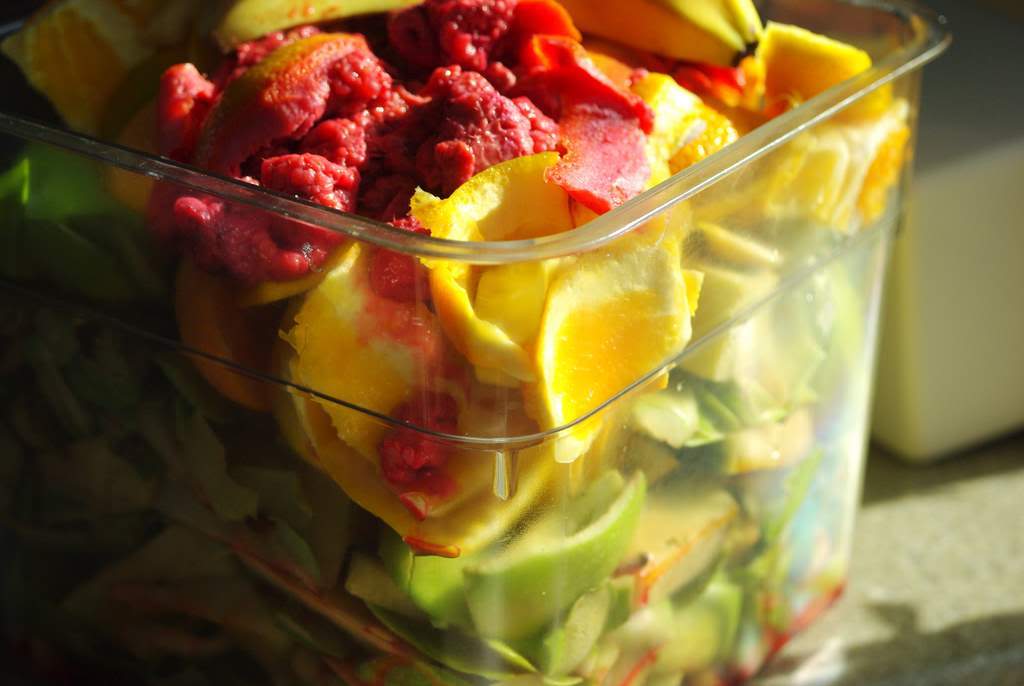
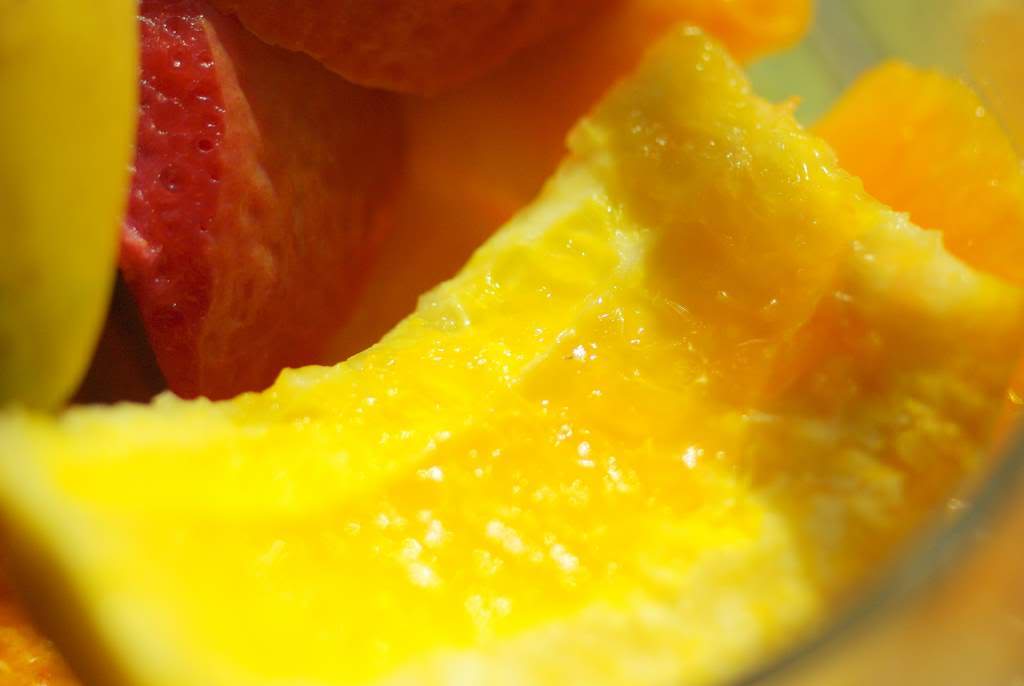


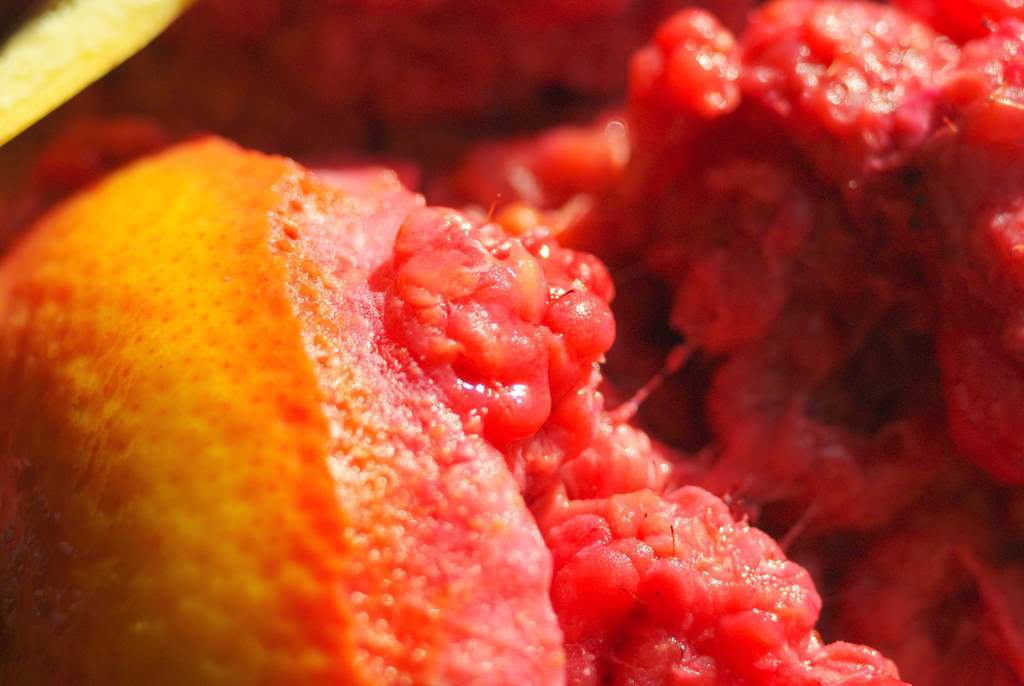
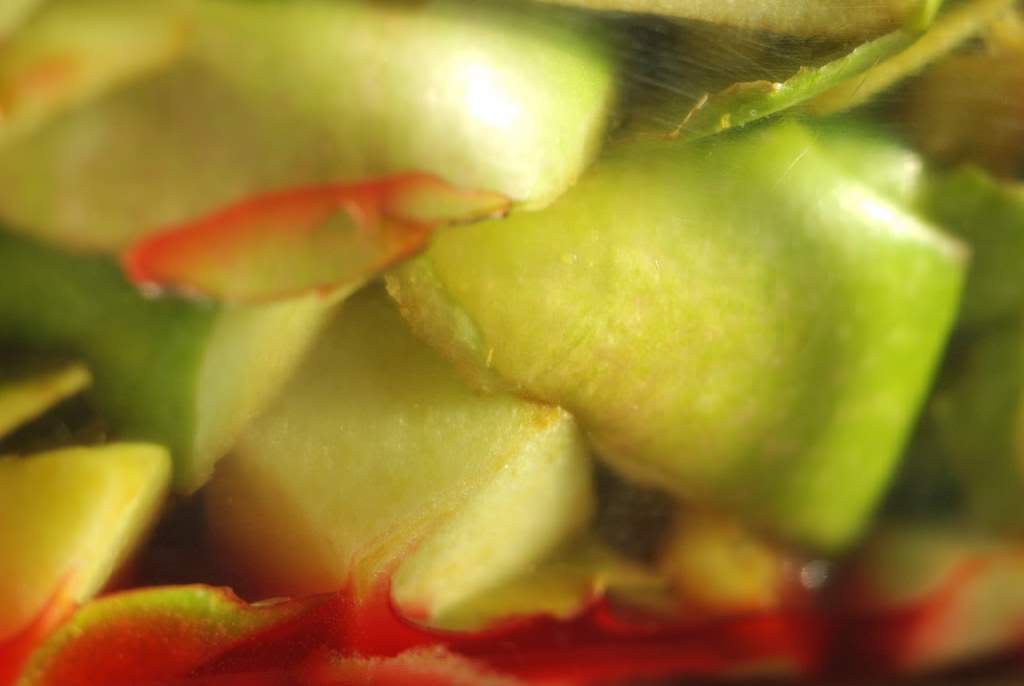
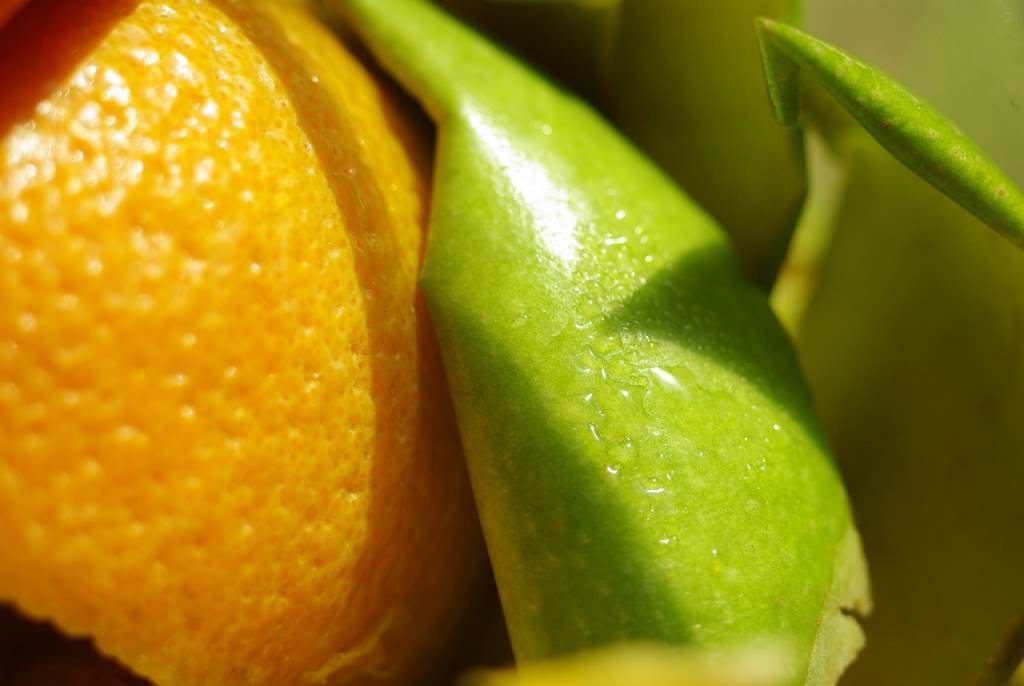
Wow, these are the most beautiful pictures of fruit scraps I've ever seen. Excellent photography! And I agree with you about the philosophical point you made--the "international" compost. I feel that way, too. Our scraps go into a worm bin, but the downside is that my wife gets all the worm castings for the veggie beds, nothing for me and the bamboos :-(.
ReplyDeleteThanks! Unfortunately these may be the last nice photos you see from me for a while -- the shutter on my Pentax has stuck closed, and I'm weighing repair options. =(
ReplyDeleteThat sucks! Usually these days it's not worth it having a camera repaired unless it's a super expensive one. I hope this is something easy to fix. You never know...
ReplyDelete